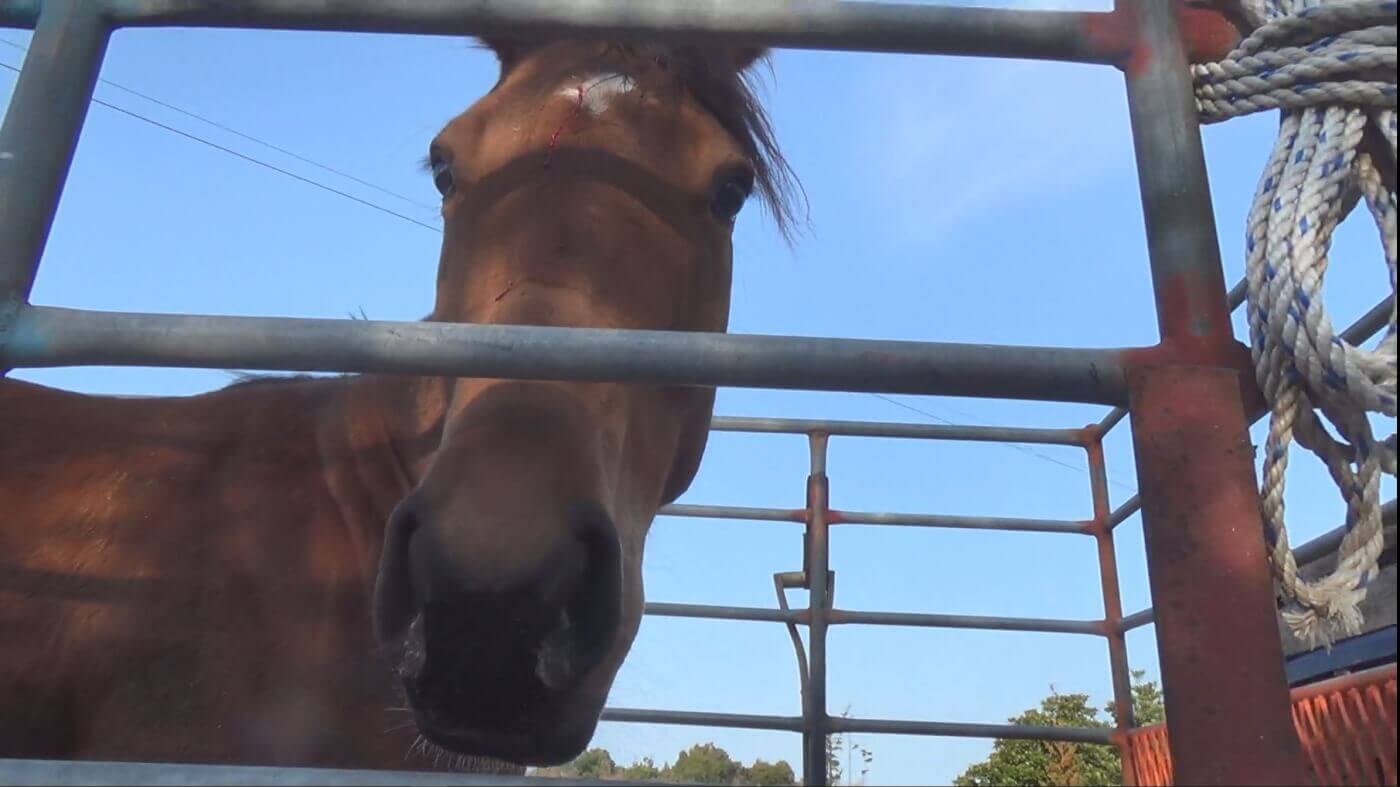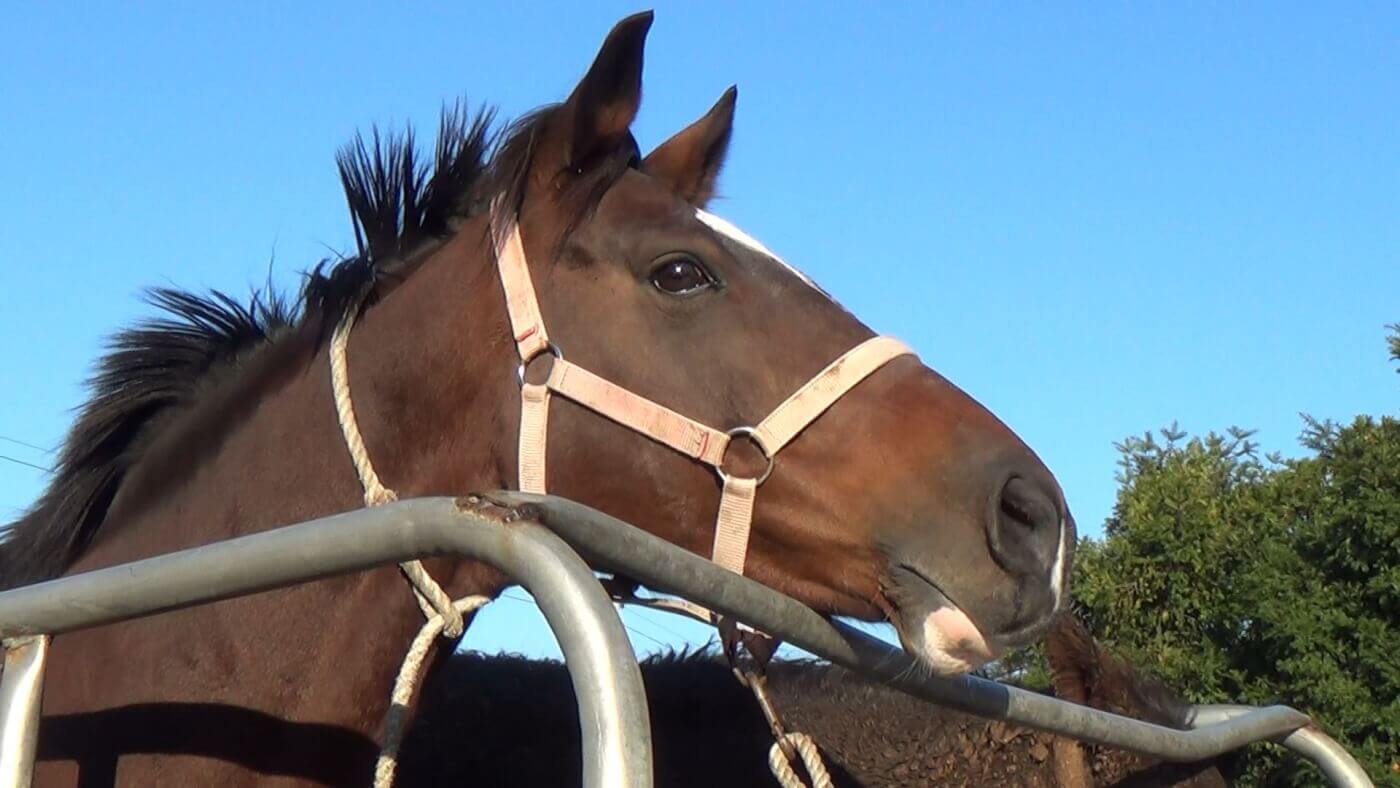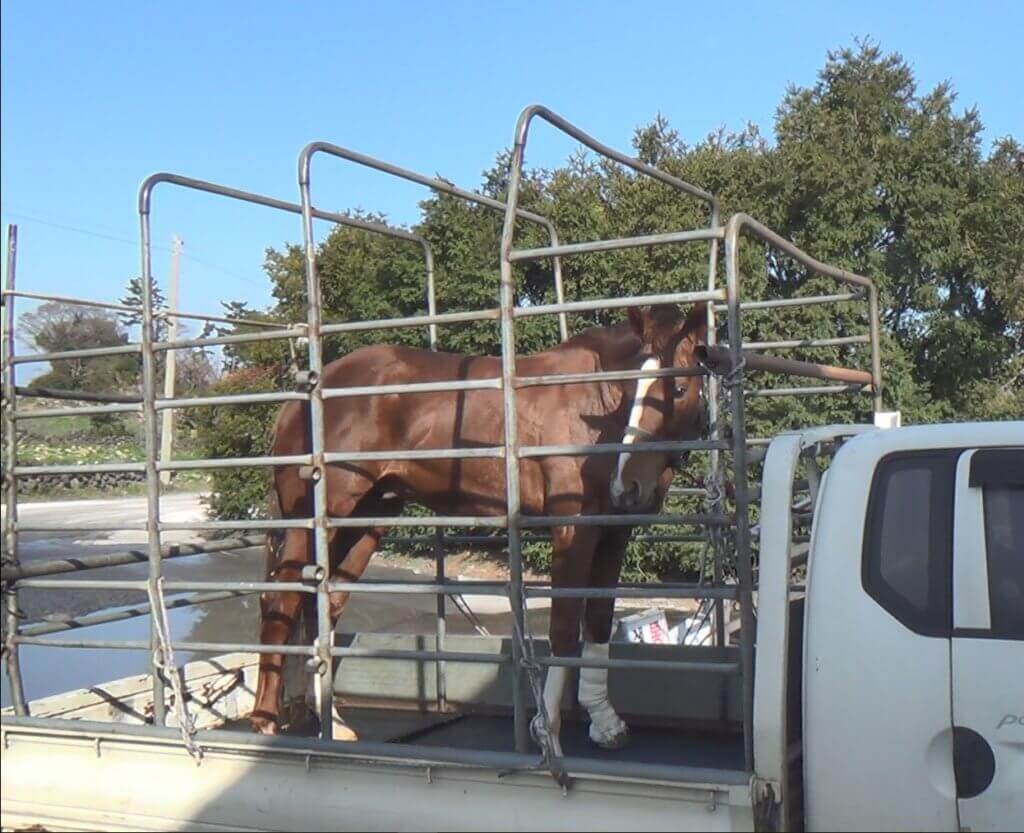PETA Slams South Korean Officials for Erasure of Racehorse Slaughter Records
From October 1, 2020, to June 30, 2021, 947 horses were killed in South Korea. But the Korea Racing Authority (KRA) doesn’t want anyone to know the identities of these horses.

The KRA is still scrambling to do damage control after PETA’s undercover “K-Cruelty” investigation exposed the cruel beatings and gruesome slaughter of former racehorses in South Korea. This investigation resulted in criminal convictions for a Korean livestock cooperative on the island of Jeju and several of its employees for slaughtering horses in full view of other horses—a violation of Korea’s Animal Protection Act. The heartbreaking footage also generated massive media coverage and prompted public outrage in Korea and internationally.
Although the KRA promised to implement a horse retirement system, the meager measures have been insufficient to slow the rate at which horses are being killed for meat for human consumption or dog and cat food. What’s worse is that the KRA, instead of fixing the problem, has tried to conceal it.
All horse slaughter records have been removed from the KRA database, including the slaughter details of stallion Private Vow.
PETA exposed that Private Vow, who ran in the 2006 Kentucky Derby, was killed at the Jeju Livestock Cooperative in July 2020. This prompted the Stronach Group—one of the largest global racetrack owners and breeding companies—to issue a policy prohibiting the export of its horses to Korea for racing or breeding. Details about the date of Private Vow’s slaughter originally appeared in public records, but now, that data field has been deleted and is blank.
Previously released quarterly slaughter verification spreadsheets—through which horse owners would be able confirm the accuracy of the identification numbers of the horses they sent to slaughter—are no longer available on KRA webpages. Before October 2020, these spreadsheets could be used to identify the individual horses who were slaughtered, and this resulted in a public outcry when PETA exposed the corresponding horse names and photos.

We posted tragic, heartbreaking images on our website, including one of a Thoroughbred named Cape Magic, who raced and was injured at a KRA racetrack in Busan (South Korea’s second most populous city) just three days before PETA filmed him at the slaughterhouse in Jeju.

“The KRA has wiped its databases clean, but the KRA’s hands are still dirty and covered with blood. This is a shameful attempt to bury the evidence instead of stopping the killing.”
—Kathy Guillermo, Senior Vice President of PETA
PETA has asked the KRA to do the following:
- Introduce a retirement system modeled on North America’s Thoroughbred Aftercare Alliance
- Allocate 2% of prize money to aftercare
- Ensure that imported North American horses won’t be slaughtered
We’re now demanding that the KRA fulfil its legal obligation as a government institution by publicly releasing all slaughter data.
You Can Help Stop the Slaughter of Racehorses in Korea
Please demand that the KRA implement a comprehensive retirement plan for unwanted horses in South Korea:

